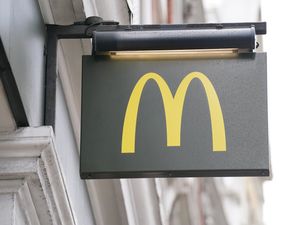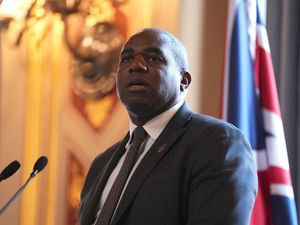Brexit: What are the options?
Theresa May is seeking a further delay to Britain’s departure from the EU but what will Brussels agree?
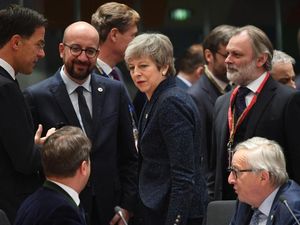
Theresa May is meeting in EU leaders in Brussels on Wednesday to ask for a further extension to the Article 50 withdrawal process.
These are the possible options:
– A “short” extension: The Prime Minister is asking the EU to delay the UK’s departure to June 30 to give her more time to get the backing of Parliament – possibly with the support of Labour – for a deal with Brussels that would allow the UK to leave in an orderly fashion.
That would mean calling elections to the European Parliament – something Mrs May has been desperate to avoid – although they would be cancelled if she can get a deal through before polling day on May 23.
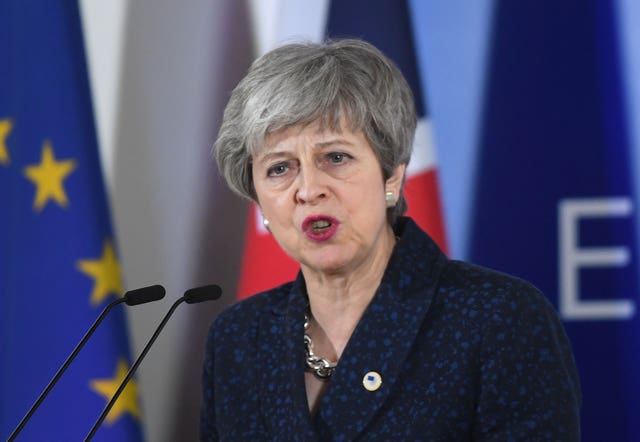
If the negotiations at Westminster were to continue beyond that date, the elections would go ahead, but the new British MEPs would potentially never sit as the new European Parliament is not due to meet until early July.
While some EU leaders are keen to keep up the pressure on the UK Parliament, others fear Mrs May could be forced to seek further extensions if she still cannot get a deal through, potentially creating a series of rolling “cliff edge” breaks.
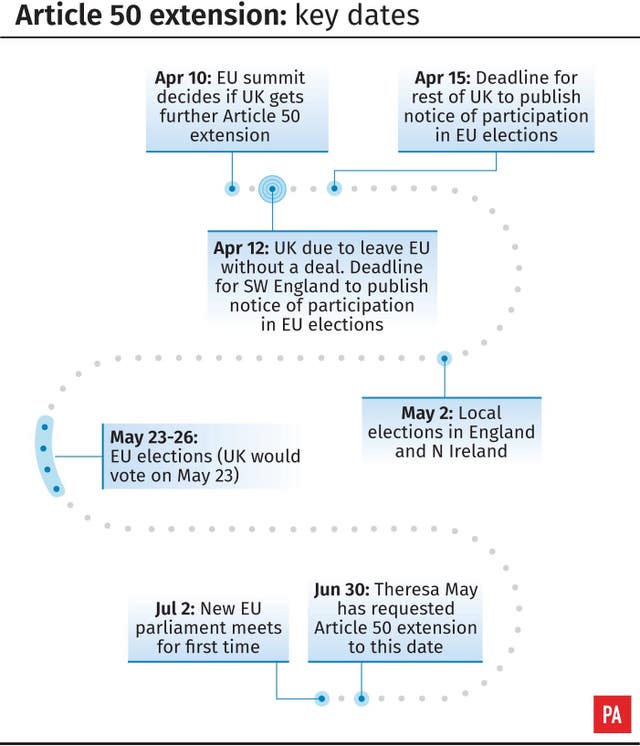
– A longer “flextension”: This is European Council president Donald Tusk’s plan, amid concerns in Brussels MPs will be unable to agree and ratify a deal before the end of June.
It would mean a lengthy delay of up to 12 months, although with an option to leave early if there is an agreement at Westminster before then.
As with Mrs May’s plan, it would mean the UK staging European elections – although this time with a real prospect MEPs will actually take up their seats in the new parliament.
Some European leaders believe the additional time would allow Britain the space to come to a settled position, but others fear an unhappy UK could be a disruptive presence in the EU.
It would also increase the unrest among some Tory MPs already angry that Britain did not leave as planned on March 29, leading to further pressure for Mrs May to step down.
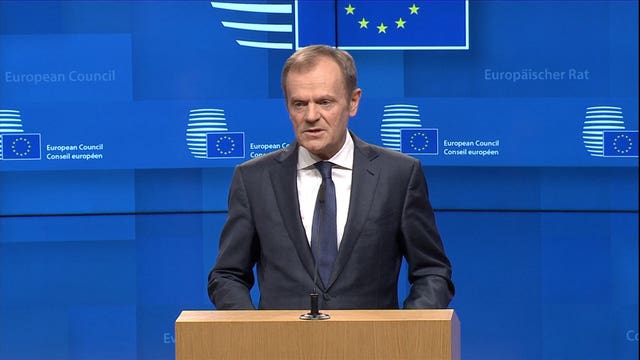
– No-deal: If there is no agreement on an extension, the default position remains that Britain will leave the EU at 11pm UK time (midnight in Brussels) on Friday without a deal – the result many businesses fear the most.
Such an outcome would create huge uncertainty – although Brexiteers argue that claims of a huge hit to the economy are exaggerated.
Although it would appear to be the least likely outcome, any extension has to be agreed unanimously by all the remaining 27 leaders, meaning that any one of them could veto it.
Equally, if Mrs May felt the conditions attached to any extension were unacceptable, she could walk away – but few MPs believe she would actually do so.

